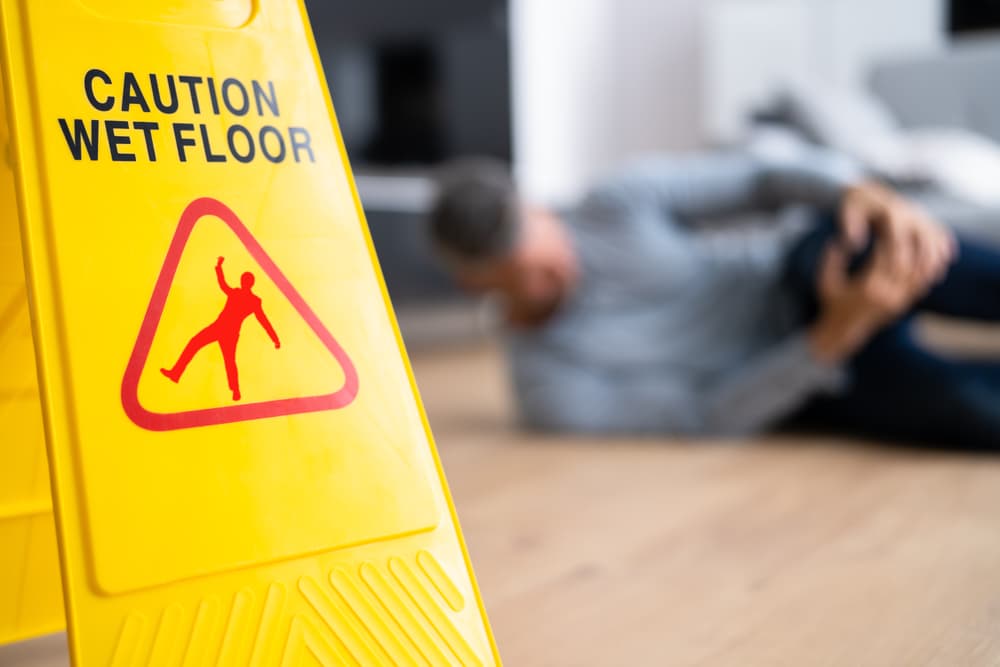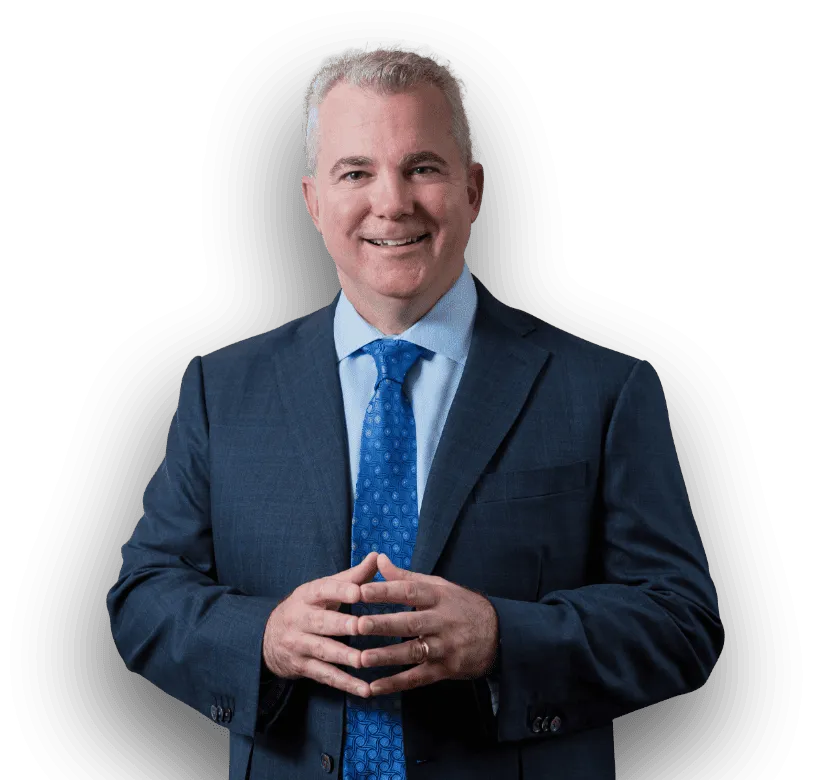After being injured in a slip and fall accident, the property owner and other parties may be liable for your injuries and damages. However, proving negligence in a slip and fall case can be challenging because the claimant must demonstrate that the property owner knew about the hazardous condition and failed to fix it. Most falls are easily preventable when property owners reasonably care for the premises.
If you sustained injuries and actual damages due to a slip and fall on someone else's property, speak to a slip and fall attorney immediately. They can best advise you on what steps to take while formulating a plan to secure a financial settlement for your losses. Schedule a free consultation to get started.
Common Causes of Slip and Fall Accidents

To be able to file an insurance claim or lawsuit for a slip and fall, a hazardous condition must be responsible for your accident. Wearing improper footwear or losing your balance are not viable reasons for another person's negligence. Common causes of slip and fall accidents that may warrant a valid claim are as follows:
- Unmarked wet or waxed floors
- Unmarked and unmopped food and drink spills
- Broken or cracked flooring
- Uneven floors and walkways
- Cluttered walkways and debris in pathways
- Missing or broken handrails
- Insufficient lighting
- Uneven or broken steps
- Loose rugs and lifted carpeting
- Ice and snow on pathways and in parking lots
- Large potholes or cracks in concrete
There are many other contributing factors to slip and fall accidents. Your personal injury attorney will explain whether your cause can be demonstrated as negligence. Slip and fall accidents can happen in the workplace, while visiting someone's home, or in other locations, such as hospitals, restaurants, grocery stores, shopping malls, swimming pools, stadiums, and parking garages. Nursing homes are another common place where slip and fall accidents occur, with over 60% of residents falling annually.
Who Can Be Liable in a Slip and Fall Case?
Generally, property owners are the most common liable party in a slip and fall case because they are responsible for maintaining the premises. That includes providing adequate warning and fixing hazardous conditions that could contribute to a slip and fall and injuries. However, other parties may potentially be liable in a slip and fall case, including the following:
- Property Managers and Landlords: When property management companies or landlords are responsible for maintaining safe premises, they may be liable if they fail to remedy a hazardous condition.
- Government Entities: When slip and fall accidents occur on public property due to improperly maintained sidewalks, roads, or government buildings, government entities may be liable for injuries and damages. These cases are generally more challenging.
- Commercial Tenants: When a landlord leases a commercial building to a business owner who creates a hazardous condition, the business owner can be liable for a slip and fall case.
- Residential Tenants: There are some instances where a residential tenant creates a hazardous condition in their rented space, making them liable for a slip and fall and subsequent damages.
Multiple parties may be liable for injuries and damages when slip and fall accidents occur. This is especially true when they happen at nursing homes. Liable parties may include the nursing home facility, staff, third-party vendors, and other residents. An experienced slip and fall lawyer will investigate all possible parties of liability to ensure maximum compensation for your case.
Proving Negligence in a Slip and Fall Case
Slip and fall accidents fall under premises liability law, which requires a claimant or their injury attorney to prove the four elements of negligence: a legal duty of care, a breach of that duty, causation of injuries, and damages. While the property owner has a duty to act with reasonable care, the measure of what's considered reasonable varies based on the extent to which the relationship benefits the owner. There are three categories of people to which the owner owes differing levels of reasonable care:
- Invitees: People invited to a property for business reasons, such as customers in a store or patients in a hospital. Property owners must exercise the highest level of care to ensure the safety of invitees.
- Licensees: People permitted to be on a property for social reasons, like visiting a friend's home. Homeowners must warn licensees of hazardous conditions. However, they aren't necessarily accountable for inspecting and handling hidden dangers.
- Trespassers: People who are on the property without permission from the owner. Property owners usually don't owe a reasonable duty of care to trespassers. However, some states, like California, may make exceptions if a judge believes a property owner should have anticipated that trespassers may come onto their property.
Solid evidence strengthens your slip and fall case. The evidence in your case must clearly demonstrate negligence, sustained injuries, and actual damages. Evidence that helps with proving negligence in a slip and fall case includes photographs of the hazardous condition, accident or incident reports, emails demonstrating property owners or management companies were aware of the condition, and security camera footage of the fall.
Detailed medical records and witness testimony establish sustaining injuries. Medical bills and receipts for out-of-pocket expenses, such as copays, deductibles, and employer lost wage statements, prove actual damages. An experienced slip and fall attorney will help gather and preserve evidence quickly.
Why You Need an Experienced Slip and Fall Lawyer
Proving negligence in a slip and fall case can be challenging because it involves proving the liable party knew about the hazardous condition, failed to provide an adequate warning, such as a wet floor sign, and failed to fix it. You want an experienced premises liability lawyer who regularly handles slip and fall cases like yours to represent you. They are familiar with premises liability law and establishing negligence to secure maximum compensation for your slip and fall. Their services generally include:
- A thorough investigation into your slip and fall
- Gathering and preserving the evidence in your slip and fall case
- Locating and interviewing eyewitnesses
- Consulting with expert witnesses for valuable insight and testimony
- Valuing the damages in your case
- Negotiating with insurance companies
Let a Slip and Fall Attorney Advocate For You
Representing your case in court before a judge and jury is another invaluable service if your case requires litigation. Fortunately, most slip and fall cases are settled outside court. You'll want to speak to an attorney to determine which legal action to pursue to recover compensation. Schedule a free case evaluation.
